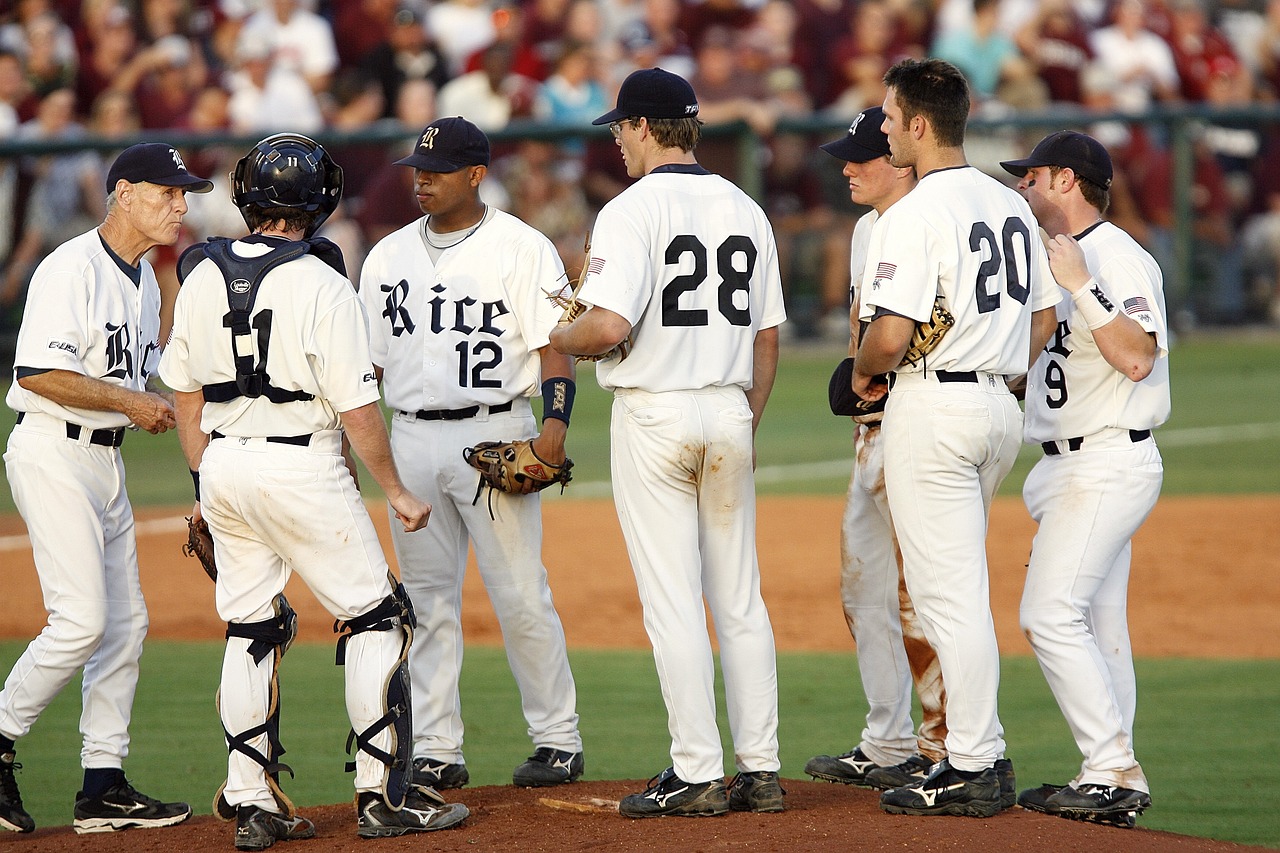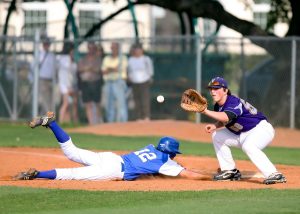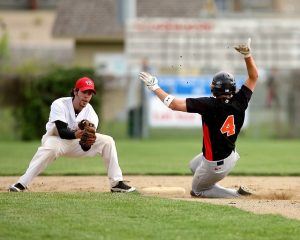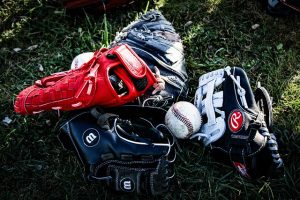Last Updated on July 26, 2023 by Matt Musico
Being a baseball coach at any level — especially for youth players — is a very important job. You’re molding young minds and helping them learn lessons they’ll remember for a lifetime. There’s nothing quite like being on a baseball team as a kid, and it’s an honor for baseball coaches to play a role in their growth…both on and off the field.
Outside of sharing your wisdom about the game and life, you need to arrive with the right stuff to set everyone up for success. Here are nine pieces of equipment you should consider having in your possession any time you hit the diamond (and two bonus ones for good measure).
Disclaimer: This article includes affiliate links. We may receive a commission for any purchases made after clicking them. When making a purchase online, be sure to do enough due diligence before buying a product.
Essential Equipment
Baseballs
You can’t play baseball without baseballs, right?
For practices, it’s probably good to have a bucket that players can warm up with, as well as take fielding and batting practice with. You’ll also need to have some game balls set aside for each contest. It’s recommended to have at least 12 baseballs for every game. Make sure the baseballs are the right size and weight for the age group of your players.
Bats
It’s common for players to come with their own baseball bat these days. But that doesn’t happen for everyone. So with that in mind, it’d be good to have a couple of selections available for those who might need it.
The bats you bring may rarely get used, but you never know when the need might arise, so it’s good to be prepared. Make sure you have bats of different sizes and weights to accommodate your players.
Also, if you want to look super official while conducting infield/outfield, think about getting yourself a fungo bat.
Helmets
It’s crucial to make sure every player has a helmet that fits. Depending on the level you coach at, the helmet should fit snugly on the head and must have a faceguard that covers the entire face. Just like with baseball bats, many players will likely come to the field with their own personal helmets, but not everyone. So, it’s good to be prepared for those who need it.
Training Aids
Pitching Machine
You may like to throw batting practice yourself, but sometimes, your arm/shoulder can’t take the workload. That’s where a pitching machine can come in handy.
It can not only help players improve their batting and fielding skills, but it’s an excellent tool for simulating game situations. Coaches can adjust the speed and direction of pitches to challenge players in any way they’d like.
Tee
A batting tee is a simple but effective tool for improving a player’s swing. Heck, I still have a batting tee in my garage, just in case I need it.
It allows players to focus on their form and technique without worrying about the speed or direction of the pitch. Coaches can use it to teach players how to hit different types of pitches by physically moving the tee to different areas of the hitting zone in multiple ways.
L-Screen
If you insist on throwing as much batting practice as humanly possible, you’ll probably need an L-screen.
This is a protective net that shields the pitcher from batted balls. Coaches can also use it to simulate game situations during BP. The L-screen can be set up to protect the pitcher while allowing the batter to hit the ball.
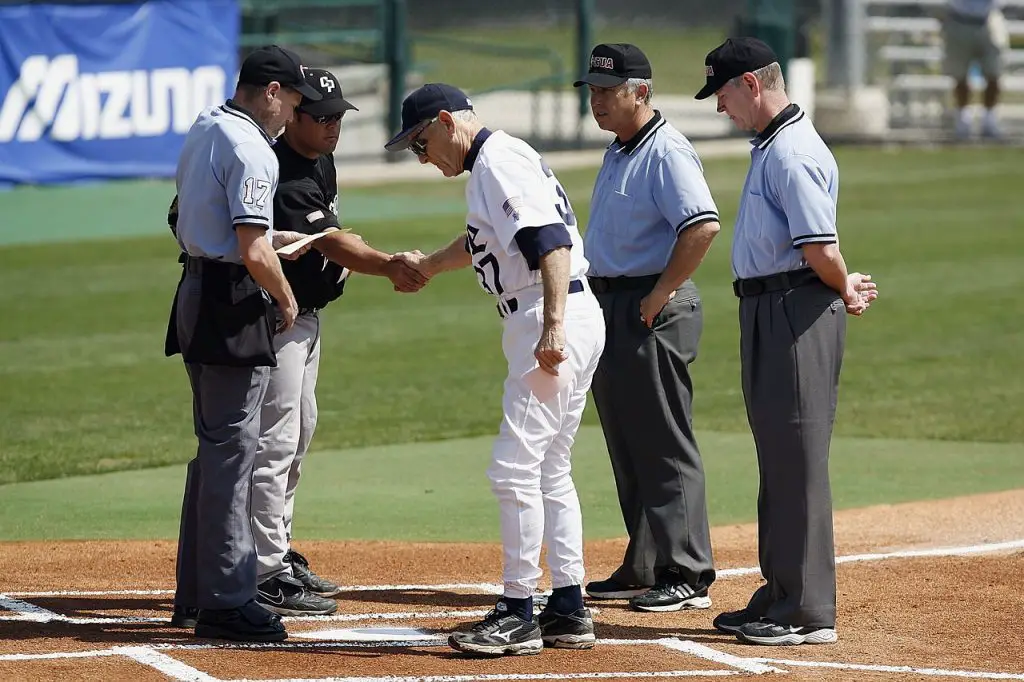
Field Maintenance
Rake
Depending on the level of baseball you’re coaching and the league your team is participating in, you may have to also act as the grounds crew for your home field. And if you don’t need to for games, you might have to for practices.
A rake is a must-have for maintaining a level playing surface. Use it to smooth out dirt and remove debris. Look for a rake with a sturdy metal head and a comfortable grip.
Line Marker
Unless you want to guess if a ball is fair or foul or where the batter’s/catcher’s box is, a line marker is necessary for marking the field’s boundaries. Look for a marker that’s easy to use and refill. Consider a wheeled marker for larger fields.
Tarps
Tarps are used to protect fields from rain and other weather conditions. Look for tarps that are durable, easy to handle and the right size for your field.
Regular maintenance of the field is also important. Coaches should inspect their field weekly for any dips, cracks, or sudden elevations. The infield, outfield, base paths, and batter’s box should be as smooth and as level as possible.
Optional Equipment
Batting Cage
A batting cage is an excellent addition to a baseball team’s training equipment if you’re able to swing it (pun intended). This provides a safe and controlled environment for players to take their hacks. It also allows you to save time from fetching balls all over the field.
Batting cages come in different sizes and materials, from portable to permanent installations. Some cages even come with pitching machines.
Portable Pitching Mound
A portable pitching mound is another piece of equipment that can help players keep their pitching skills sharp. They come in different sizes and materials, from foam to fiberglass. They are easy to move and store, making them a convenient option for any baseball team.
Of course, every baseball coach and team is different, and certain pieces of equipment are more important/vital than others. Pay attention to what your squad needs so you can put them in the best possible position to succeed on the field.
Want to see some homers in person this season? Of course you do. Grab MLB tickets from our friends at Vivid Seats. And before you get to the stadium, make sure you’re decked out in the right gear. Get your favorite team’s official merch from the MLB Shop or a ‘Big Dinger Energy’ shirt from our apparel store.
